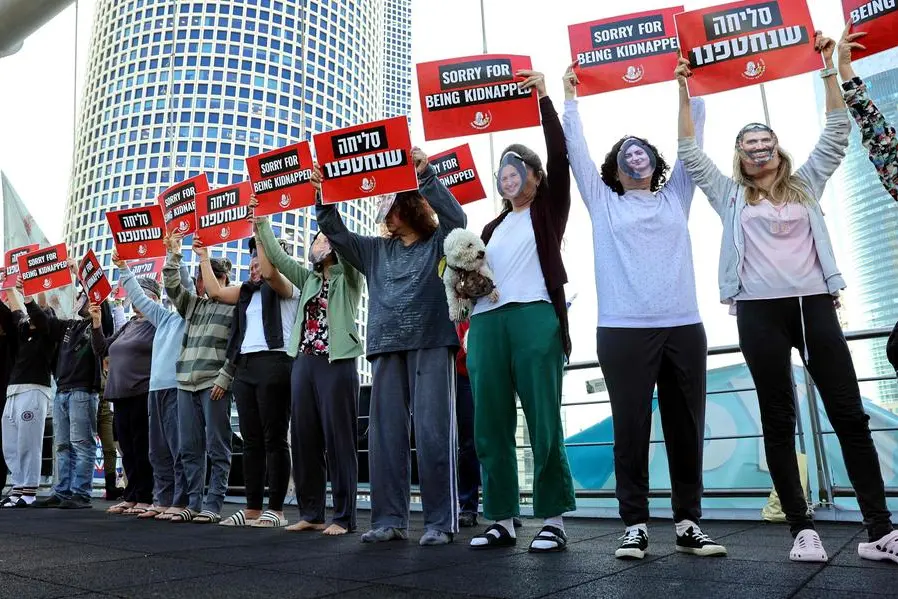PHOTO
Israel's war cabinet approved on Saturday sending negotiators to Qatar to continue talks aimed at securing a ceasefire in the war against Hamas and the return of hostages being held in Gaza, officials and local media said.
The talks began in Paris, where the head of Israel's overseas intelligence service Mossad and his counterpart at the domestic Shin Bet security service met with mediators from the United States, Egypt and Qatar.
National security adviser Tzachi Hanegbi said in a televised interview Saturday evening that the "delegation has returned from Paris -- there is probably room to move towards an agreement".
The negotiators had asked to speak to the cabinet "to bring us up to speed on the results of the Paris summit", he added shortly before the meeting.
Israeli media later reported that the meeting had concluded, with the cabinet agreeing to send a delegation to Qatar in the coming days to continue negotiations on a weeks-long truce involving the release of hostages in exchange for Palestinian prisoners held in Israel.
Pressure has steadily mounted on Prime Minister Benjamin Netanyahu's government to strike a deal to free the hostages, with thousands gathering in Tel Aviv Saturday at what has come to be known as "Hostages Square" to demand swifter action.
"We think about them (the hostages) all the time and want them back alive as soon as possible," said Orna Tal, whose close friend Tsachi Idan was kidnapped from the Nahal Oz kibbutz.
"We'll protest again and again until they're back," she told AFP.
- 'Leverage' -
In his interview Saturday, Hanegbi said Israel wanted the release of all hostages seized in the October 7 attacks, starting with the women, but added: "Such an agreement does not mean the end of the war."
He also indicated that Israel would not accept any deal between the United States and Saudi Arabia for a Palestinian state.
Netanyahu said in a statement that Saturday's cabinet meeting would discuss "next steps in the negotiations".
He also reaffirmed his aim for troops to go into Rafah in southern Gaza, despite widespread concern about the impact on hundreds of thousands of civilians who have fled there to avoid bombardments.
An AFP reporter in Rafah said there had been at least six air strikes on the city on Saturday evening.
Israel's air, land and sea war against Hamas in retaliation for its deadly October 7 attacks on southern Israel has killed at least 29,606 people, the Hamas-run health ministry in Gaza says.
Hamas attacked rural communities and military posts bordering the Gaza Strip, leaving at least 1,160 people dead, according to an AFP tally based on official Israeli figures.
Some 250 hostages were taken, of whom 130 are still in Gaza, although about 30 are thought to be dead, Israel says.
A one-week pause in fighting in November saw more than 100 hostages released, including 80 Israelis who were freed in exchange for some 240 Palestinians jailed in Israel.
Netanyahu has characterised Hamas's demands for a ceasefire in Gaza as "bizarre" and vowed to press on with the military campaign until "total victory" over the group is achieved.
The head of Israel's military, Herzi Halevi, visited the Gaza Strip and also said military action was the most effective way of getting back the hostages.
Combat was "leverage", he told troops. "We need to continue and apply it strongly... to use it to release the hostages," he added.





















